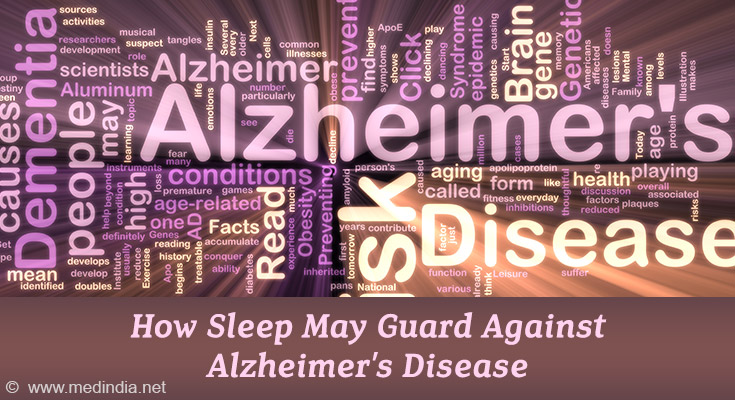Your brain may be losing more than rest during poor sleep- new research links sleep deprivation to Alzheimer’s-related brain changes.
- Reduced slow wave and REM sleep are linked to smaller brain volumes in Alzheimer’s-vulnerable regions
- Polysomnography and imaging reveal that poor sleep in midlife may raise long-term Alzheimer’s risk
- Sleep architecture could be a modifiable factor to delay or reduce Alzheimer's disease onset
Lower slow wave sleep and rapid eye movement sleep are associated with brain atrophy of AD-vulnerable regions
Go to source). The inferior parietal region of the brain, which is known to experience early structural alterations in Alzheimer's disease, had smaller volumes among those who spent less time in slow wave and rapid eye movement sleep, according to the results. Potential confounders such as demographic traits, history of smoking, alcohol use, hypertension, and coronary heart disease were taken into account when adjusting the results.
Your brain cleans up and restores itself during sleep- skipping deep sleep might speed up Alzheimer’s changes over the years! #brainhealth #alzheimersawareness #sleepscience #dementiaprevention #medindia’
Link Between Sleep Deprivation and Alzheimer’s Disease
Lead author Gawon Cho, a doctorate and postdoctoral associate at Yale School of Medicine in New Haven, Connecticut, said, "Our findings provide preliminary evidence that reduced neuroactivity during sleep may contribute to brain atrophy, thereby potentially increasing the risk of Alzheimer’s disease." These findings are especially important because they shed light on the potential connections between Alzheimer's disease etiology and cognitive impairment and sleep deprivation, a common issue among middle-aged and older persons.The study was accepted for publication in the American Academy of Sleep Medicine's official journal, the Journal of Clinical Sleep Medicine.
Most Common Cause of Dementia
The most frequent cause of dementia, according to the Alzheimer's Association, is Alzheimer's disease, a degenerative brain disease. According to estimates, 6.7 million Americans 65 and older have Alzheimer's disease; if medical advancements are made to prevent, delay, or cure the condition, this figure is expected to double by 2060.Data from 270 participants, whose median age was 61 years, were analyzed for the study. All participants were Caucasian, and 53% were female. Those with a history of stroke, probable dementia, or other serious brain disorders were not included in the analysis. Polysomnography was used in the study to evaluate the baseline architecture of sleep. Thirteen to seventeen years later, brain volumes were measured using sophisticated brain imaging techniques.
In addition to highlighting potential ways to lower the risk of Alzheimer's disease, the study shows a significant correlation between sleep and long-term brain health, according to the scientists.

Can We Delay Onset of Alzheimer's Disease?
"There is a chance to investigate interventions to lower risk or postpone the onset of Alzheimer's disease because sleep architecture may be a modifiable risk factor for Alzheimer's disease and related dementias," Cho added.To completely comprehend the causal linkages between sleep architecture and the advancement of Alzheimer's disease, the researchers underlined the need for more research.
Reference:
- Lower slow wave sleep and rapid eye movement sleep are associated with brain atrophy of AD-vulnerable regions - (https://jcsm.aasm.org/doi/10.5664/jcsm.11630)
Source-Medindia
















